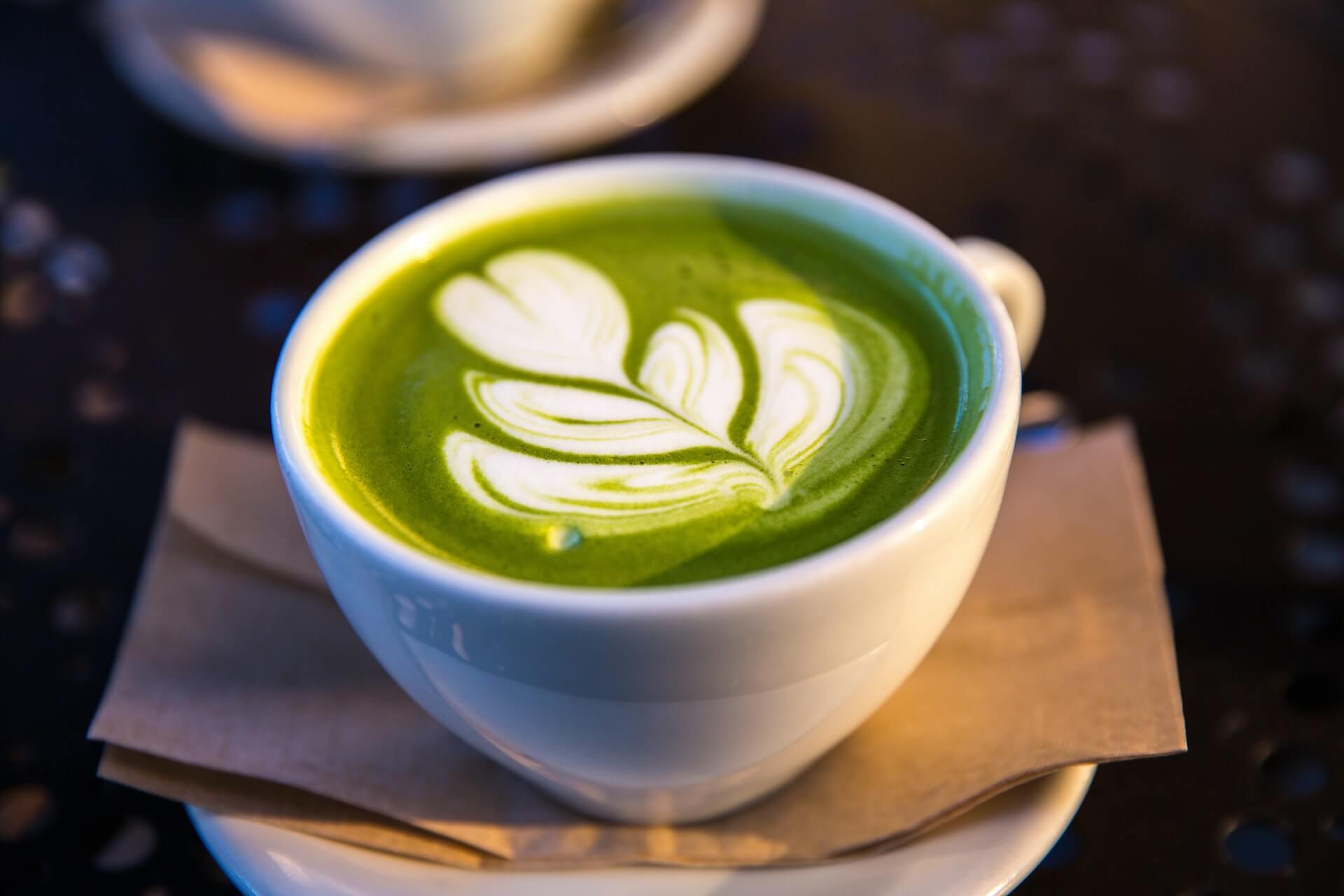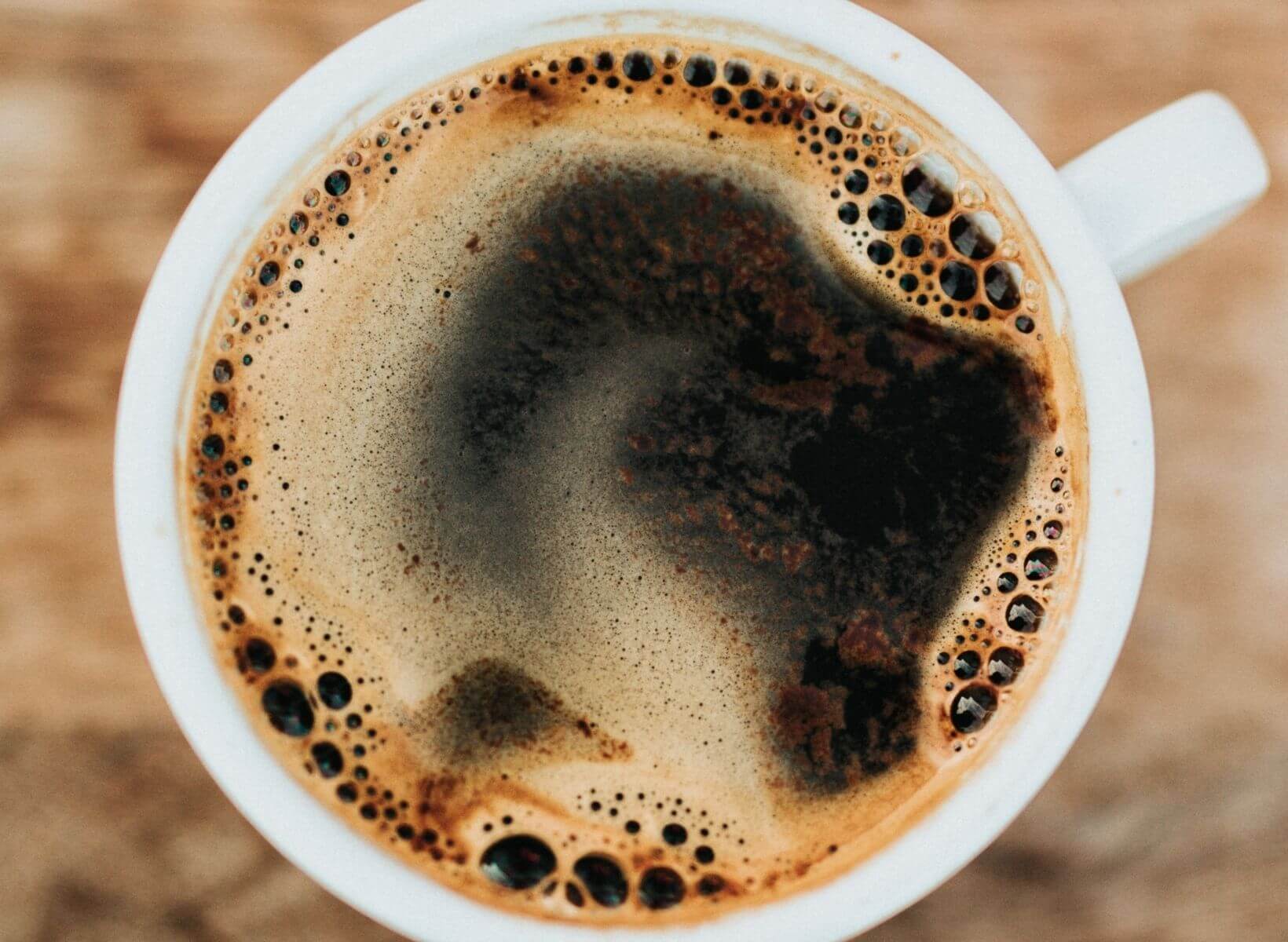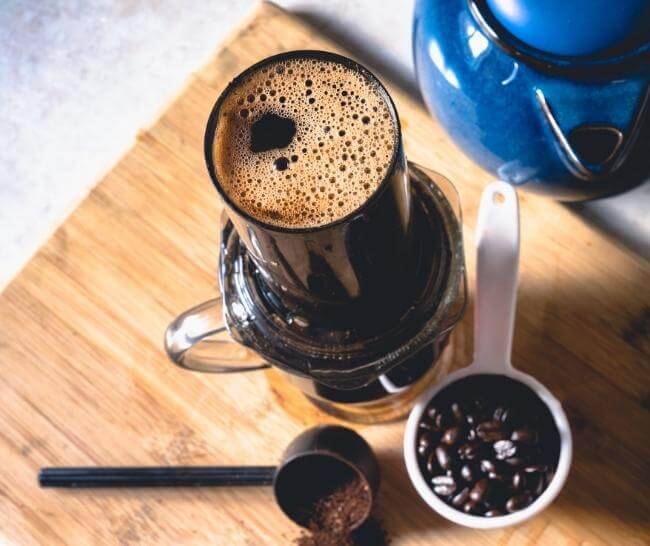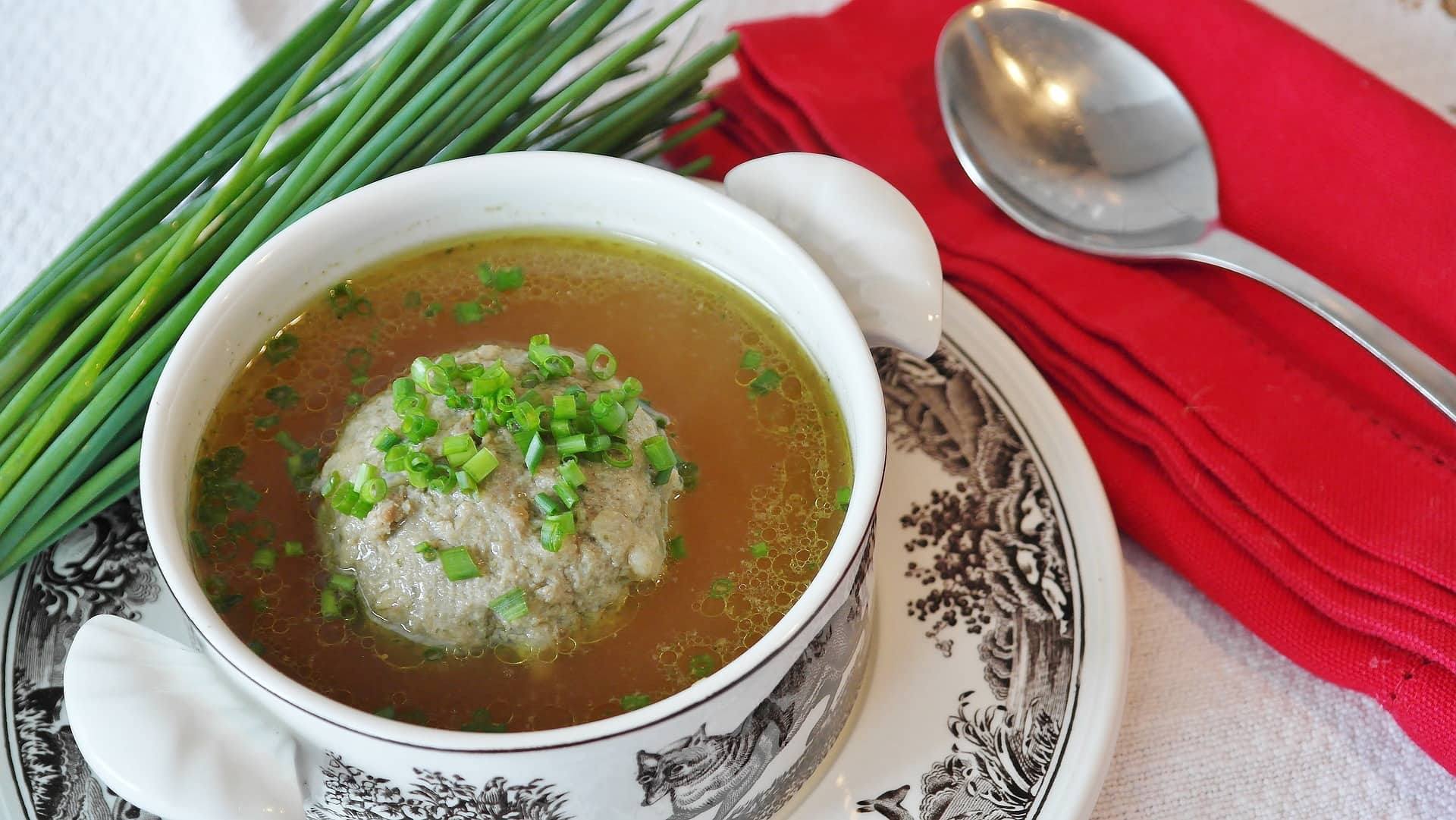Green tea and green tea extracts have become popular beverages and supplements for starting the day. The health halo surrounding these green tea products makes them enticing for many who are trying to lose weight and improve their health.
But can drinking green tea really help you lose weight?
In this article, we’ll review what green tea is, whether it helps with weight loss, its other potential health benefits, and how best to prepare and consume it.
What Is Green Tea?
Green tea is also known as “unoxidized tea.” Like black tea, it comes from the Camellia sinesis plant. Green tea was originally only used for medicinal purposes, but in the early Tang Dynasty (600 -900 AD) many of the wealthy started drinking it for enjoyment as well.1Green tea eventually made its way to Europe and the Americas, but has only recently become appreciated for its health benefits and flavor.
Green tea is still harvested by hand, the way it has always been done. The leaves are cooked immediately to preserve the green color and prevent oxidation. In contrast, black tea is harvested, rolled, and allowed to dry and oxidize which causes the leaves to turn black.
Green tea has a much higher concentration of chlorophyll, polyphenols, and antioxidants than black tea or oolong tea. It is especially rich in the antioxidant catechin, epigallocatechin-3-gallate (EGCG - more on this below).
There are many varieties of green tea, most of which come from China or Japan. The Chinese green teas, longjing and gunpowder, and Japanese green teas, sencha and tencha, are the most common varieties. Matcha green tea is a powdered form of the tencha tea leaf. Matcha is the primary tea used in Japanese tea ceremonies.
Can Green Tea Help You Lose Weight?
Green tea has become more popular in recent years due to its presumed health benefits, one of which is weight loss.
Both caffeine and EGCG are believed to help with weight loss, although the jury is still out on how significant an effect drinking green tea may have.2
In animal studies, green tea extracts have shown a lot of promise. Studies have found significant weight loss along with reductions in blood glucose, insulin resistance, visceral fat accumulation, and plasma cholesterol levels.3
Unfortunately the results in human studies have been variable, with only limited and mild weight loss benefits.4
<p class="pro-tip"><strong>Learn about </strong><a href="/blog/weight-loss-for-beginners">weight loss for beginners</a></p>
Some studies have been promising, showing that a short-term combination of both caffeine and the catechin EGCG might slightly increase energy expenditure and fat oxidation in some people. A recent meta-analysis found that both catechin and caffeine in tea boosted energy expenditure for over 24 hours. When combined, the catechin and caffeine mixture also increased fat oxidation rates.5

In a large study of middle-aged Korean adults, women who consumed higher amounts (>4 cups/week) of green tea had lower rates of abdominal obesity. The same effects were not seen in men, however.6Longer-term studies have been less positive. A recent systematic review found a very small (and not statistically significant) effect on weight loss from drinking green tea over 12 weeks.7While the effects of green tea on weight loss are conflicting, its ability to oxidize fat, especially visceral fat, is promising.
Decreasing visceral fat, or “belly fat,” may help reduce the risk of other chronic diseases and health issues, including metabolic syndrome, insulin resistance, diabetes, and heart disease.
<p class="pro-tip"><strong>Learn about </strong><a href="/blog/lower-belly-fat">how to burn off lower belly fat</a></p>
What Kind of Green Tea Is Best for Weight Loss?
With green tea cold brews and matcha everywhere, you may be wondering what type of green tea beverage is best to support your weight loss efforts. Is caffeinated tea better than decaf? And what about those bottled green teas? Let’s tease out the facts from the fallacies.
Hot vs Cold Green Tea
There’s an old myth floating around that hot beverages (like hot water first thing in the morning) will increase your metabolism, but research has largely squashed that belief. Hot or cold, the temperature of the beverage you choose has little to no effect on your ability to burn extra calories.
The bigger question is if one type of tea brewing method produces and preserves more health-promoting antioxidants than others, which may affect how much weight you can lose.
Both hot and cold brew teas release similar amounts of catechins and have similar antioxidant capacity. Cold brewing tea takes longer to reach the same level, but may have a milder flavor.8One study found that by adding ice to hot tea, both the phenol and caffeine content are better preserved than in either hot or cold brewed tea alone. The idea is that hot water allows for the greatest extraction of phenols and caffeine, while chilling it quickly diminishes oxidation.9
Tip from an RD - If you find the flavor of hot-brewed teas too intense, give cold brewing a try. Add tea leaves or tea bags to cold water and let them infuse overnight. Your mild-flavored tea will be ready for you first thing in the morning!
Matcha Green Tea
Matcha green tea is a powdered form of the Japanese tencha variety. It is grown in the shade, which increases the amount of amino acids and antioxidant content. Shade growing is also what gives matcha its vibrant green color and smooth, savory flavor.
<p class="pro-tip"><strong>Learn about </strong><a href="/blog/fruits-vegetables-colors">eating colorful produce for optimal health</a></p>
Matcha is considered the highest quality green tea. It contains higher levels of epigallocatechin-3-gallate (EGCG) compared to other types of green tea, and is slightly higher in caffeine than other teas.10Matcha also contains the antioxidant quercetin, which may help reduce oxidative stress and inflammation, support cognitive function, improve insulin sensitivity, and when combined with EGCG may have stronger anticarcinogenic effects.10 Along with other forms of green tea, the EGCG in matcha may inhibit the absorption of fat and glucose in your GI tract and may help with improving insulin sensitivity.10
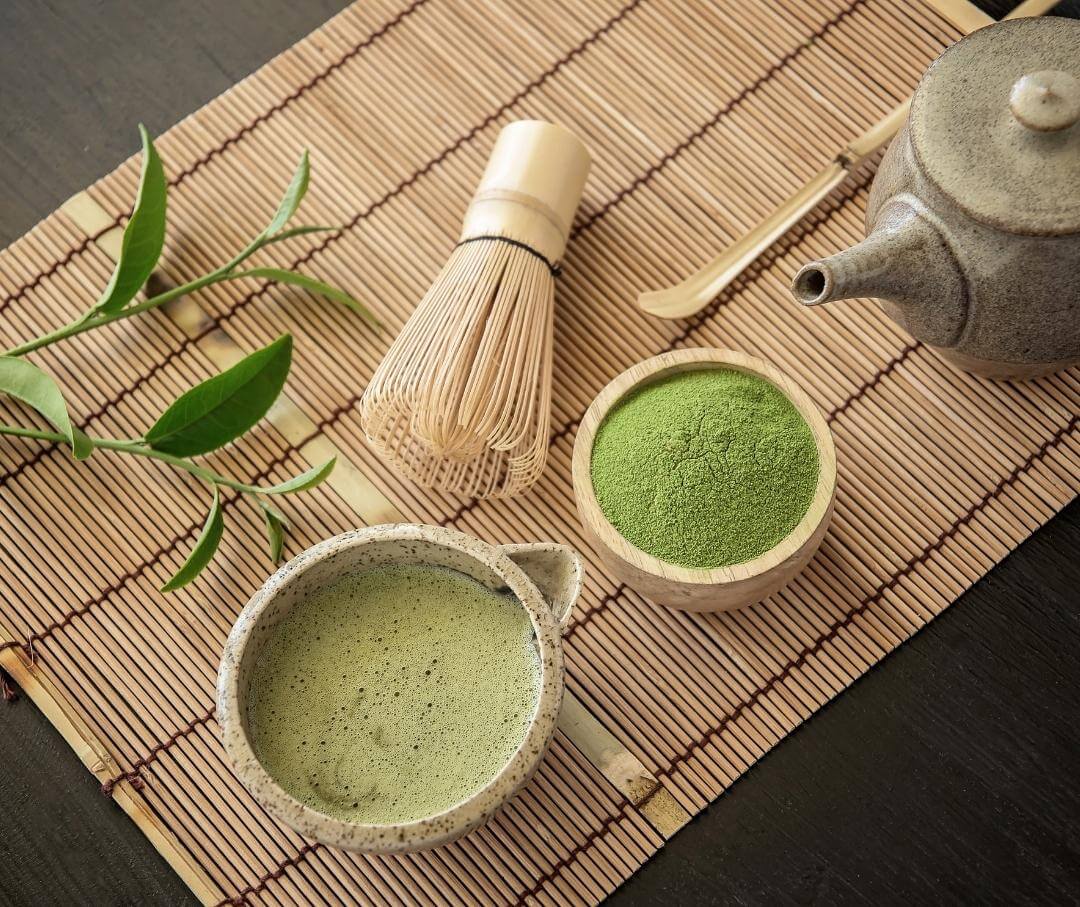
As for weight loss, like other types of green tea, the effects of matcha on weight loss are varied. One small study in the International Journal of Sport Nutrition and Exercise Metabolism found that women who drank matcha green tea combined with a brisk walking program experienced an increase in fat oxidation. The study was small and a short duration so more research is needed but the impact on fat oxidation when combined with exercise is promising.11
Tip from an RD - If the flavor of matcha is a bit too bitter for you, try adding a teaspoon of matcha powder to your morning green smoothie, or make a matcha latte with hot milk (or a dairy-free milk alternative).
<p class="pro-tip"><strong>Learn about </strong><a href="/blog/dairy-blood-sugar">what happens in your body when you eat dairy</a></p>
{{mid-cta}}
Decaffeinated Green Tea
One of the suggested reasons why tea may help with weight loss is because of the caffeine content. If this is true, it would make sense that decaffeinated green tea would be less effective than regular green tea. However, some research indicates there may be more to the story.
A recent study with overweight girls aged 6 -10 found consuming decaffeinated green tea polyphenols resulted in decreased percent body fat over 12 weeks.12
Keep in mind, that a typical cup of regular green tea only contains 20 - 50 mg of caffeine, significantly less than a cup of coffee.
Tip from the RDN: If you are caffeine sensitive, you should stick with decaffeinated and enjoy it for its flavor and other health benefits.
<p class="pro-tip"><strong>Learn about </strong><a href="/blog/weight-loss-coffee">green coffee for weight loss</a></p>
Bottled Green Tea
Bottled green teas have a similar composition of catechins and other bioactive compounds as home-brewed tea. One of the benefits is that they are manufactured under controlled conditions. This means the amount of these beneficial compounds tends to be more consistent than home brewed tea.13
The one thing to be aware of with bottled green teas are added sugar and sweeteners. Many bottled green tea brands include added high-fructose corn syrup, sugar or artificial sweeteners.
Tip from the the RDN: Read the nutrition label and ingredient list carefully on bottled teas. Look for an unsweetened version or find a version that has no more than 5 grams of added sugar and uses a natural sweetener like monk fruit.
How to Get the Most Benefit From Green Tea for Weight Loss
If you are drinking green tea for health reasons, including weight loss, you'll want to make sure you optimize your brew.
Use the Best Method for Preparing Green Tea
To get the most benefit out of your green tea, you’ll want to use the right ratio of tea to water, brew your tea at the right temperature, and let it steep for enough time to extract all the antioxidants.
To make a cup of tea, the recommended ratio is to use 1 tea bag per cup of water or 1 teaspoon of loose tea leaves per cup.14
For hot tea, it’s recommended to use boiling water (212°F) and allow the tea to steep for at least 5 minutes. Teas made this way have shown the highest level of antioxidant capacity.15
Cold brewing also works, but it takes much longer to reach the same level of catechins and antioxidant capacity.16A benefit of cold brewing is you end up with a sweeter and smoother flavored tea. So if a few spoonfuls of sugar is the only way to get the tea to go down, give cold brewing a try.
How Much Green Tea Should You Drink in a Day?
The amount of green tea you should drink daily to promote weight loss likely varies between individuals. Most research has shown between 3 - 5 cups a day may result in a small amount of weight loss.17Keep in mind the caffeine content of green tea and if you are sensitive to its effects, consider a decaffeinated version, or reuse your tea leaves or tea bags to get less caffeine. For a good night’s sleep, plan on having your last cup of caffeinated tea at least 6-8 hours before bedtime.
Can You Re-brew Green Tea Leaves?
It depends. One recent study found that loose leaf teas released more catechins over multiple infusions, while green tea in bags released fewer.18 Rebrewing will also decrease the caffeine content, as most of the caffeine is released in the first brew.8Reusing tea is a great way to cut back on waste, and still get some of the antioxidant benefits, but with less caffeine. Keep in mind the flavor may change with each infusion of re-brewed tea leaves.
Tip from the RDN: Set your tea bag in a separate dish after the first brew to dry out a bit. When you are ready, add it to another cup of hot water and brew it just a minute or two longer than the first brew for the best flavor.
Green Tea Sweeteners
Added sugars, including honey, agave syrup, and raw sugar, all add calories and can raise your blood sugar. If you like sweeter tea, you may want to try cold brewed green tea. Cold brewing takes longer, but the end product is reportedly sweeter and smoother so you may not need to add a sweetener.
Some green tea products come with added sweeteners. Look for sweeteners that don’t raise your blood sugar like monk fruit, allulose, or stevia.
<p class="pro-tip"><strong>Learn about </strong><a href="/blog/sugar-substitutes-blood-sugar">the best sugar substitutes that won't raise blood sugar</a></p>
Green Tea Extract vs GreenTea
What about green tea extracts? Often these supplements are mixed into sports drinks or protein powders. If you don’t like the flavor of green tea, would a green tea supplement be a good substitute?
The research is conflicting with green tea supplements as well, but they might be worth considering. There is some evidence that supplements of green tea extract (GTE) may help improve energy expenditure, reduce total cholesterol and glucose levels, and improve fat oxidation.19,20A recent systematic review that looked at providing GTEs with varying amounts of EGCG. They saw mixed results on metabolic rate and energy expenditure and respiratory quotient. Interestingly, the green tea supplements with lower doses of EGCG had better results.21

In another study, when combined with exercise including endurance training, GTE supplementation improved BMI, waist to hip ratio, and reduced body fat percentage versus exercise alone.22 The observed effects seen so far have been mild, and more research is needed to determine the amount of EGCG for any significant benefit. In the meantime, adding a GTE supplement, along with making other nutrition changes and exercise, may help support your weight loss goals.
<p class="pro-tip"><strong>Learn about </strong><a href="/blog/boost-metabolism">7 ways to boost your metabolism</a></p>
Other Health Benefits of Green Tea
While the effects of green tea on weight loss may be minimal, there are many other reported health benefits you may get from drinking green tea regularly, including:
- Reduced inflammation
- Reduced risk of cancer
- Reduced risk of metabolic syndrome
- Reduced risk of diabetes
- Reduced risk of cardiovascular disease
- Improved insulin sensitivity
- May help improve mood and memory
Green tea contains many antioxidants and phytochemicals, but especially EGCG and quercetin, that may help protect against free radical damage, reduce inflammation as well as decrease visceral “belly” fat.
EGCG and caffeine may play a role in decreasing inflammation and oxidative damage in the brain and heart and may help support the immune system.10 Along with it’s anti-inflammatory functions, EGCG may inhibit carbohydrate digestion and lipid absorption, helping to reduce blood glucose and decrease lipid levels.23 Because of EGCG’s potential to reduce inflammation and protect cells against oxidation, it has long been thought to have a role in reducing the risk of some cancers.24 When FDA reviewed the research they found very limited evidence to support a health claim about green tea reducing breast and prostate cancer risk.25 What does this mean for you? Well, their is some potential that green tea may support a reduced risk for these and other cancers but much more research needs to be done.
Are There Potential Drawbacks to Green Tea or Green Tea Extract?
With all the positive benefits of drinking green tea, you may be wondering if there are any downsides to adding green tea to your daily routine. As with just about anything, everyone is different and will react differently.
Here are a few potential things to watch out for when drinking green tea.
As mentioned before, if you are sensitive to caffeine, look for a decaffeinated version to reduce any caffeine-associated side effects.
High amounts of green tea or green tea extract may reduce the blood levels of a blood pressure medication called a beta-blocker.26 Check with your doctor or pharmacist to see if this may be a concern for you.
In rare instances, some people have experienced liver problems when taking green tea extract.27 If you have liver disease, talk with your doctor before adding green tea to your routine or starting a GTE supplement.
Green Tea for Weight Loss Takeaways
Overall, green tea is a healthful beverage choice for most people. The powerful antioxidant EGCG may have some effect on visceral fat, but don’t rely on EGCG alone to meet your weight loss goals. Your best bet is to combine green tea with a healthy diet and exercise to get the most out of your weight loss efforts.
While the ability of green tea to help with weight loss may still be questionable, keep in mind the additional health benefits you may get from enjoying a cup or two of green tea each day.
Deciding to give green tea a try? Go for it! Just remember that green tea with sweeteners or milk may affect your blood glucose levels. So monitor your blood sugar response with your CGM and the Signos app to see how adding green tea to your routine affects your blood glucose levels.
- Item 1
- Item 2
- item 3
Topics discussed in this article:
References
- What is Green Tea? (n.d.) Retrieved June 10, 2022, from: https://www.artoftea.com/blogs/tea-101/what-is-green-tea
- Jurgens, T. M., Whelan, A. M., Killian, L., Doucette, S., Kirk, S., & Foy, E. (2012). Green tea for weight loss and weight maintenance in overweight or obese adults. The Cochrane database of systematic reviews, 12(12), CD008650. https://doi.org/10.1002/14651858.CD008650.pub2
- Yang, C. S., Zhang, J., Zhang, L., Huang, J., & Wang, Y. (2016). Mechanisms of body weight reduction and metabolic syndrome alleviation by tea. Molecular nutrition & food research, 60(1), 160–174. https://doi.org/10.1002/mnfr.201500428
- Li, C., Niu, M., Guo, Z., Liu, P., Zheng, Y., Liu, D., Yang, S., Wang, W., Li, Y., & Hou, H. (2022). A Mild Causal Relationship Between Tea Consumption and Obesity in General Population: A Two-Sample Mendelian Randomization Study. Frontiers in genetics, 13, 795049. https://doi.org/10.3389/fgene.2022.795049
- Hursel, R., Viechtbauer, W., Dulloo, A.G., Tremblay, A., Tappy, L., Rumpler, W. and Westerterp-Plantenga, M.S. (2011). The effects of catechin rich teas and caffeine on energy expenditure and fat oxidation: a meta-analysis. Obesity Reviews, 12: e573-e581. https://doi.org/10.1111/j.1467-789X.2011.00862.x
- Kwak, J., & Shin, D. (2022). Association between Green Tea Consumption and Abdominal Obesity Risk in Middle-Aged Korean Population: Findings from the Korean Genome and Epidemiology Study. International journal of environmental research and public health, 19(5), 2735. https://doi.org/10.3390/ijerph19052735
- Jurgens, T. M., Whelan, A. M., Killian, L., Doucette, S., Kirk, S., & Foy, E. (2012). Green tea for weight loss and weight maintenance in overweight or obese adults. The Cochrane database of systematic reviews, 12(12), CD008650. https://doi.org/10.1002/14651858.CD008650.pub2
- Sharpe, E., Hua, F., Schuckers, S., Andreescu, S., & Bradley, R. (2016). Effects of brewing conditions on the antioxidant capacity of twenty-four commercial green tea varieties. Food chemistry, 192, 380–387. https://doi.org/10.1016/j.foodchem.2015.07.005
- Lantano, C., Rinaldi, M., Cavazza, A., Barbanti, D., & Corradini, C. (2015). Effects of alternative steeping methods on composition, antioxidant property and colour of green, black and oolong tea infusions. Journal of food science and technology, 52(12), 8276–8283. https://doi.org/10.1007/s13197-015-1971-4
- Kochman, J., Jakubczyk, K., Antoniewicz, J., Mruk, H., & Janda, K. (2020). Health Benefits and Chemical Composition of Matcha Green Tea: A Review. Molecules (Basel, Switzerland), 26(1), 85. https://doi.org/10.3390/molecules26010085
- Willems, M., Şahin, M. A., & Cook, M. D. (2018). Matcha Green Tea Drinks Enhance Fat Oxidation During Brisk Walking in Females. International journal of sport nutrition and exercise metabolism, 28(5), 536–541. https://doi.org/10.1123/ijsnem.2017-0237
- Xie, L., Tang, Q., Yao, D., Gu, Q., Zheng, H., Wang, X., Yu, Z., & Shen, X. (2021). Effect of Decaffeinated Green Tea Polyphenols on Body Fat and Precocious Puberty in Obese Girls: A Randomized Controlled Trial. Frontiers in endocrinology, 12, 736724. https://doi.org/10.3389/fendo.2021.736724
- Petisca, C., Melo, A., Ferreira, I.M.P.L.V.O. and Pinho, O. (2009), Brewing practices to maximise levels of catechins and other compounds with functional properties in Azorean green tea infusions: comparison with composition of canned green tea drinks. Journal of Foodservice, 20: 241-249. https://doi.org/10.1111/j.1748-0159.2009.00140.x
- The Tea Experience: Home Brewing for the Best. (n.d.) Tea Association of the U.S.A., Inc. Retrieved June 10, 2022, from: https://www.teausa.com/14521/brewing-tea
- Sharpe, E., Hua, F., Schuckers, S., Andreescu, S., & Bradley, R. (2016). Effects of brewing conditions on the antioxidant capacity of twenty-four commercial green tea varieties. Food chemistry, 192, 380–387. https://doi.org/10.1016/j.foodchem.2015.07.005
- Jin, Y., Zhao, J., Kim, E. M., Kim, K. H., Kang, S., Lee, H., & Lee, J. (2019). Comprehensive Investigation of the Effects of Brewing Conditions in Sample Preparation of Green Tea Infusions. Molecules (Basel, Switzerland), 24(9), 1735. https://doi.org/10.3390/molecules24091735
- Yang, C. S., Zhang, J., Zhang, L., Huang, J., & Wang, Y. (2016). Mechanisms of body weight reduction and metabolic syndrome alleviation by tea. Molecular nutrition & food research, 60(1), 160–174. https://doi.org/10.1002/mnfr.201500428
- Kowalska, J., Marzec, A., Domian, E., Galus, S., Ciurzyńska, A., Brzezińska, R., & Kowalska, H. (2021). Influence of Tea Brewing Parameters on the Antioxidant Potential of Infusions and Extracts Depending on the Degree of Processing of the Leaves of Camellia sinensis. Molecules (Basel, Switzerland), 26(16), 4773. https://doi.org/10.3390/molecules26164773
- Rondanelli, M., Riva, A., Petrangolini, G., Allegrini, P., Perna, S., Faliva, M. A., Peroni, G., Naso, M., Nichetti, M., Perdoni, F., & Gasparri, C. (2021). Effect of Acute and Chronic Dietary Supplementation with Green Tea Catechins on Resting Metabolic Rate, Energy Expenditure and Respiratory Quotient: A Systematic Review. Nutrients, 13(2), 644. https://doi.org/10.3390/nu13020644
- Suliburska, J., Bogdanski, P., Szulinska, M., Stepien, M., Pupek-Musialik, D., & Jablecka, A. (2012). Effects of green tea supplementation on elements, total antioxidants, lipids, and glucose values in the serum of obese patients. Biological trace element research, 149(3), 315–322. https://doi.org/10.1007/s12011-012-9448-z
- Rondanelli, M., Riva, A., Petrangolini, G., Allegrini, P., Perna, S., Faliva, M. A., Peroni, G., Naso, M., Nichetti, M., Perdoni, F., & Gasparri, C. (2021). Effect of Acute and Chronic Dietary Supplementation with Green Tea Catechins on Resting Metabolic Rate, Energy Expenditure and Respiratory Quotient: A Systematic Review. Nutrients, 13(2), 644. https://doi.org/10.3390/nu13020644
- Bagheri, R., Rashidlamir, A., Ashtary-Larky, D., Wong, A., Alipour, M., Motevalli, M. S., Chebbi, A., Laher, I., & Zouhal, H. (2020). Does green tea extract enhance the anti-inflammatory effects of exercise on fat loss?. British journal of clinical pharmacology, 86(4), 753–762. https://doi.org/10.1111/bcp.14176
- Koo, S. I., & Noh, S. K. (2007). Green tea as inhibitor of the intestinal absorption of lipids: potential mechanism for its lipid-lowering effect. The Journal of nutritional biochemistry, 18(3), 179–183. https://doi.org/10.1016/j.jnutbio.2006.12.005
- Almatroodi, S. A., Almatroudi, A., Khan, A. A., Alhumaydhi, F. A., Alsahli, M. A., & Rahmani, A. H. (2020). Potential Therapeutic Targets of Epigallocatechin Gallate (EGCG), the Most Abundant Catechin in Green Tea, and Its Role in the Therapy of Various Types of Cancer. Molecules (Basel, Switzerland), 25(14), 3146. https://doi.org/10.3390/molecules25143146
- Schneerman, B.O. (2015) Letter Updating the Green Tea and Risk of Breast Cancer and Prostate Cancer Health Claim April 17, 2012. U.S. Food and Drug Administration. Retrieved June 10, 2022, from: http://wayback.archive-it.org/7993/20171114183707/https://www.fda.gov/Food/IngredientsPackagingLabeling/LabelingNutrition/ucm301644.htm
- Misaka, S., Yatabe, J., Müller, F., Takano, K., Kawabe, K., Glaeser, H., Yatabe, M. S., Onoue, S., Werba, J. P., Watanabe, H., Yamada, S., Fromm, M. F., & Kimura, J. (2014). Green tea ingestion greatly reduces plasma concentrations of nadolol in healthy subjects. Clinical pharmacology and therapeutics, 95(4), 432–438. https://doi.org/10.1038/clpt.2013.241
- Molinari, M., Watt, K.D., Kruszyna, T., Nelson, R., Walsh, M., Huang, W.-Y., Nashan, B. and Peltekian, K. (2006), Acute liver failure induced by green tea extracts: Case report and review of the literature. Liver Transpl, 12: 1892-1895. https://doi.org/10.1002/lt.21021

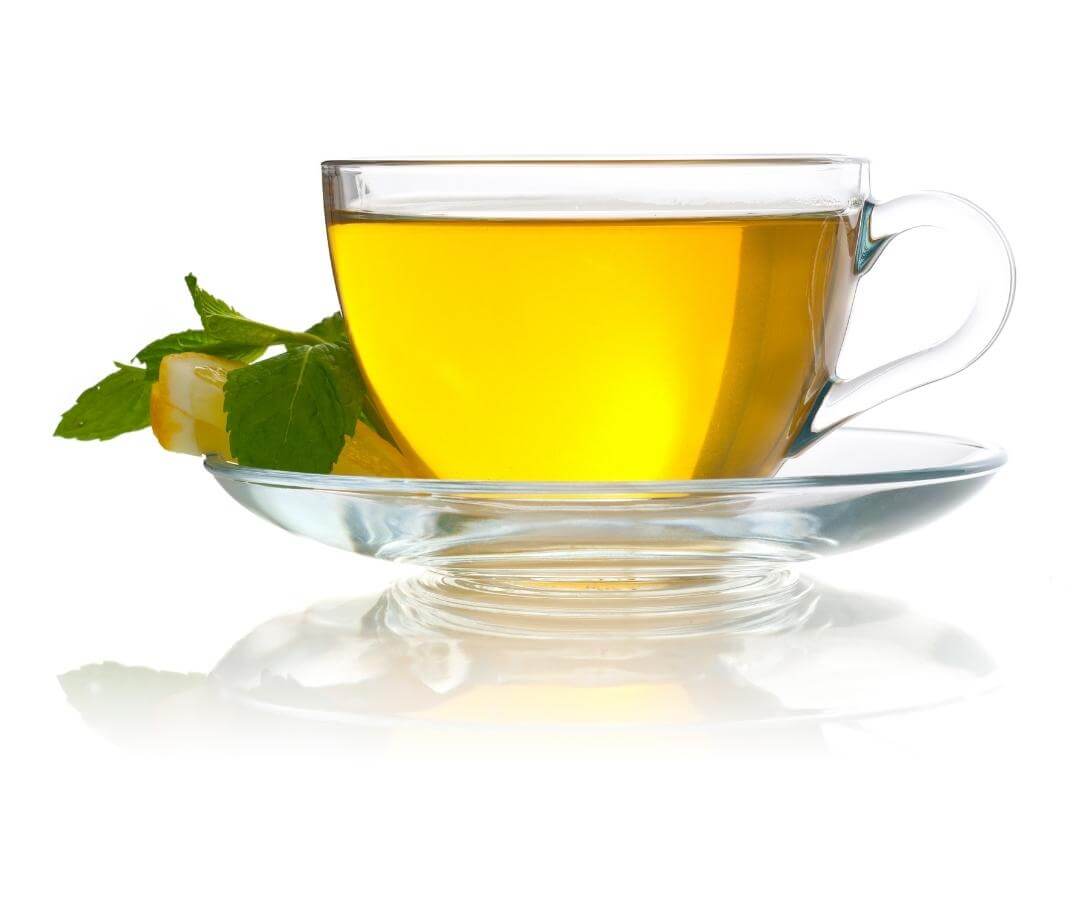
.jpg)



